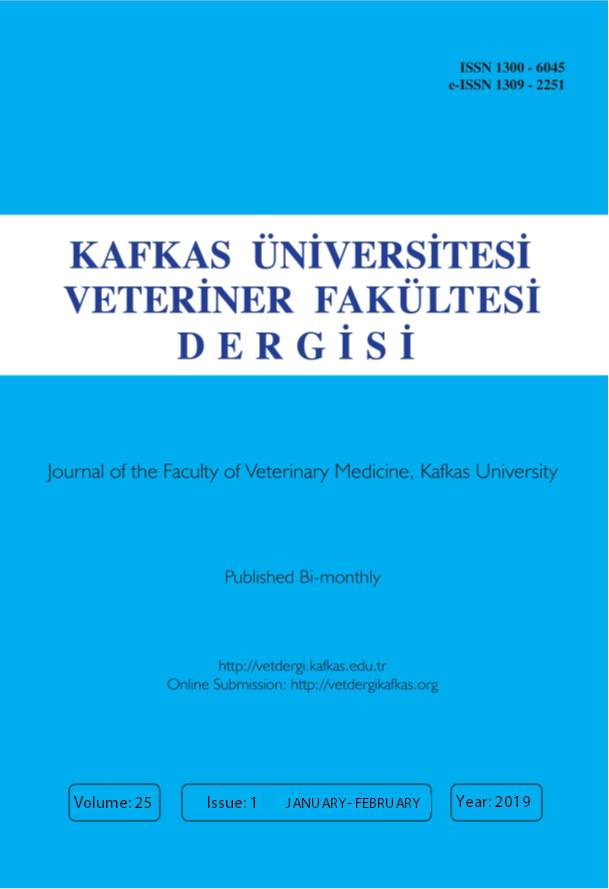
This journal is licensed under a Creative Commons Attribution-NonCommercial 4.0 International License
Kafkas Üniversitesi Veteriner Fakültesi Dergisi
2019 , Vol 25 , Issue 1
Desmoplastic Small Round-Cell Tumor in a Dog
1Kırıkkale University, Faculty of Veterinary Medicine, Department of Pathology, TR-71451 Yahsihan, Kırıkkale - TURKEY2Hatay Mustafa Kemal University, Faculty of Veterinary Medicine, Department of Pathology, TR-31060 Alahan, Antakya/Hatay - TURKEY
3Ankara University, Faculty of Veterinary Medicine, Department of Internal Medicine, TR-06110, Diskapı, Ankara - TURKEY DOI : 10.9775/kvfd.2018.20517 A 13-year-old, neutered female Husky dog was brought to the clinic with the complaints of anorexia, vomiting, abdominal distension and respiratory distress. It was suddenly died during intervention. At the necropsy, a mass was seen in the abdominal cavity. The mass had 16x15x9 cm in diameters. Histological examination revealed clusters of cells with slightly eosinophilic and scanty cytoplasm, small round hyperchromatic nuclei, and inconspicuous nucleoli encompassed by hypocellular extensive desmoplastic connective tissue stroma comprising few spindle-shaped connective tissue cells. In immunohistochemical examination. the cytoplasms of tumour cells were detected to be mildly positive by nestin. The tumour cells were negative for α-SMA (Alpha-Smooth Muscle Actin), vimentin and pancytokeratin, but stromal cells were positive for α-SMA and vimentin. Despite the presence of partially incompatible immunohistochemical findings, the tumor in this case was diagnosed as desmoplastic small round-cell tumor because its aggressiveness, localization, and histopathology was similar to that observed for this tumor in humans. Previously this tumor has not been identified in animals. Keywords : Clinicopathology, Desmoplastic tumor, Dog, Immunohistochemistry










